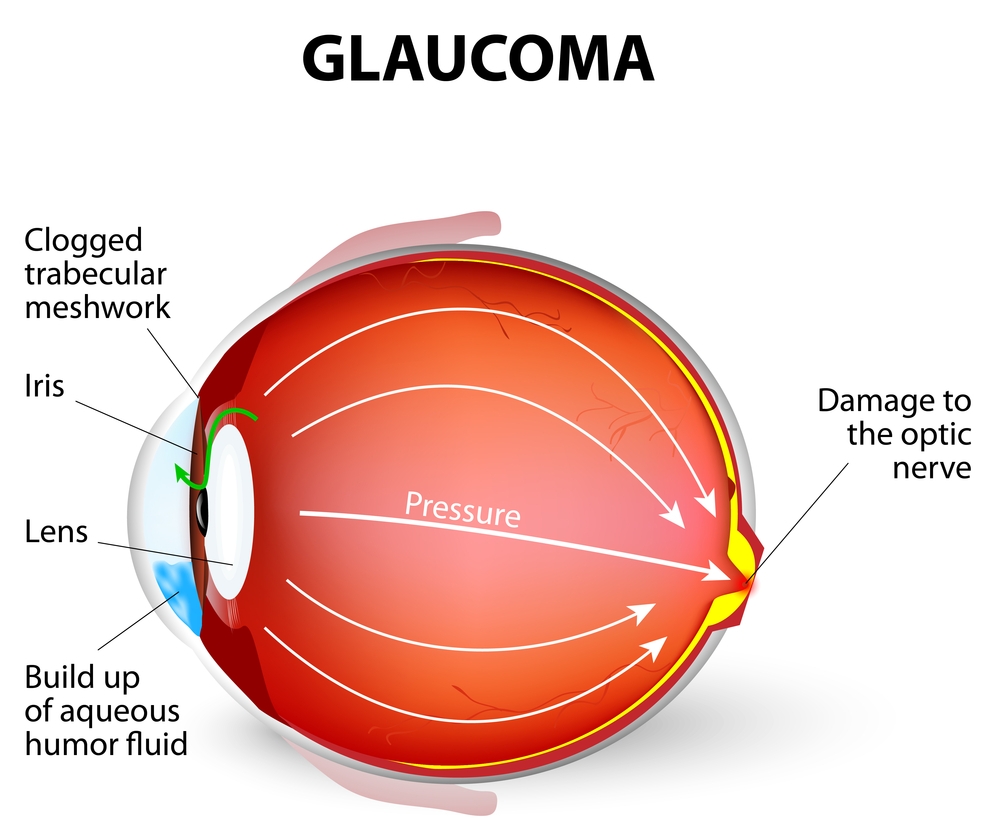Seattle Eye Care Specialists
If you have been diagnosed with glaucoma or have been labeled “glaucoma suspect” or been told you have “ocular hypertension” this appointment type is what you are looking for. Our doctors will want to get previous records sent if you have had glaucoma testing done elsewhere. This allows us to look at the big picture over a longer time period – so that we can provide the best care possible.

What is Glaucoma?
Glaucoma is a group of eye diseases that damage the optic nerve. This damage is often caused by increased pressure inside the eye, known as intraocular pressure. Over time, this pressure can crush the optic nerve, leading to vision loss or even blindness if untreated.
Glaucoma is particularly concerning because it typically has no early symptoms, making regular eye exams crucial for early detection. While anyone can develop glaucoma, certain factors like age, family history, and ethnic background may increase your risk. Fortunately, with timely diagnosis and treatment, vision loss can often be slowed or prevented.
Glaucoma Eye Exams
A glaucoma evaluation helps assess risk in patients who are considered “glaucoma suspects.” For those already diagnosed, it allows us to monitor vision loss and determine if current treatment is effective…or if we need to treat it more aggressively.
The initial assessment includes measuring eye pressure and examining the optic nerves. It may also involve dilation, retinal photos, corneal thickness measurement, and visual field testing using advanced equipment. This one-hour appointment cannot cover all tests at once, but your doctor will work with you to create a plan to complete them within one to three months of starting care.

How is Glaucoma Diagnosed?
Diagnosing glaucoma requires a thorough evaluation of your eye health during a comprehensive eye exam. Your eye doctor will perform several specialized tests to detect signs of glaucoma early, especially if you have a family history of glaucoma.
- Eye Pressure Measurement (Tonometry): This test checks for elevated pressure in the eye, a key risk factor for glaucoma.
- Optic Nerve Examination (Ophthalmoscopy): Using a specialized microscope, your doctor assesses the optic nerve for damage caused by high pressure.
- Optic Nerve Imaging: Using advanced retinal cameras and/ or the OCT (Optical Coherence Tomographer) your doctor will get baseline images to track for change.
- Visual Field Testing (Perimetry): Evaluates your peripheral vision, which is typically affected first by glaucoma.
- Corneal Thickness Measurement (Pachymetry): The thickness of the front part of the eye can influence pressure readings and glaucoma risk.
- Angle Assessment (Gonioscopy): Examines the drainage angle where the iris meets the cornea to check for blockages.
These painless tests help with early detection and help preserve your vision by spotting the disease as soon as possible. We also track for change over the years, to make sure glaucoma is not taking your sight.
Glaucoma Treatment Options
Effective glaucoma treatment focuses on lowering intraocular pressure (IOP) to protect the optic nerve and prevent further vision loss. Most patients are prescribed glaucoma drops that are used 1-3x/day depending on the drug. In the vast majority of cases, this lowers the eye pressure enough to stop progression of the disease.
There are several other approaches available, which can be tailored to your specific needs:
Laser Treatment
Procedures like Selective Laser Trabeculoplasty (SLT) improve fluid drainage and are effective for open-angle glaucoma.
Minimally Invasive Glaucoma Surgery (MIGS)
MIGS uses tiny stents to enhance fluid outflow with minimal recovery time. It’s ideal for mild-to-moderate cases.
Conventional Glaucoma Surgery
For advanced cases, surgeries like trabeculectomy create new drainage pathways to lower eye pressure.
Your doctor will recommend a personalized treatment plan based on your glaucoma type and progression.
Insurance
These services can be paid out of pocket or you can use medical insurance – vision insurance will not apply here. Medical insurance we take includes Premera, Regence, Blue Cross/Blue Shield, Lifewise, Regence Group Administrators, HMA, Uniform Medical, Medicare, and Kaiser Permanente’s PPO plans.
Click here for our Patient Medical Release Form.
FAQs
-
What is the main goal of glaucoma treatment?
The main goal is to lower eye pressure and prevent further vision loss, as lost vision cannot be restored
-
How is glaucoma usually treated?
-
Who should get regular glaucoma evaluations?
-
How often do I need check-ups if I have glaucoma?
-
Can glaucoma be cured or reversed?
-
What are common side effects of glaucoma medications?
-
How do I know if my glaucoma treatment is working?
-
What happens if glaucoma is left untreated?
-
Are there different types of glaucoma treatments?
-
How long does laser treatment for glaucoma last?
-
Is glaucoma treatment painful?
-
Can I stop using my glaucoma medication if my vision feels fine?
